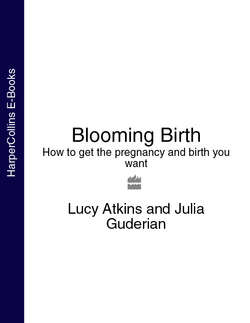Читать книгу Blooming Birth: How to get the pregnancy and birth you want - Lucy Atkins - Страница 33
Nutrition tip:
ОглавлениеIn summary, you will be fed a load of obsessive nonsense about what, how and when you should eat in pregnancy. Remember that a great many fetal and maternal health experts object to this kind of pressure – and the guilt, doubt and self-blame that result from it. Professor Baker says that most grown up women who ‘use moderation in all aspects – who don’t have particular food fanaticisms, or drink excessively’ are doing all that is necessary – nutritionally speaking – to produce perfectly healthy babies. So, the best advice is just follow the basic safety advice and get on with your life.
Where to go for help:
Drinkline 0800 917 8282 www.alcoholconcern.org.uk
The Food Standards Agency guidelines (www.food.gov.uk) offer the most up-to-date, official advice.
The Eating for Pregnancy Helpline is useful for random panics (‘Can I eat the prosciutto on this pizza?’) 01142 424084
Otherwise, this crib sheet is the best place to start.
PREGNANCY EATING
Each day try to eat a variety of foods including:
Plenty of fruit and vegetables
Plenty of starchy foods (whole grains are best, such as whole meal bread, pasta and brown rice)
Some protein (lean red meat, chicken, fish, eggs, pulses such as lentils are also good source of iron)
Some low-fat dairy products (milk, cheese, yogurt all contain calcium)
Drink lots of water
Foods you need for sure:
Your diet needs to contain plenty of iron (good foods include: red meat, pulses, leafy green vegetables, fortified breakfast cereals, dried fruit). Vitamin C helps your body to absorb iron (drink orange juice when you eat iron-rich food). Both calcium (derived from milk, cheese and yoghurt) and iron are important for the baby’s growth (anaemic mums may have low birth-weight babies).
You should take 400 mcg folic acid a day in first three months (and three months before conception if at all possible). Folic acid can protect against neural tube defects, for example spina bifida, and may protect against the failure of the placenta to work well, which can lead to pre-eclampsia, still birth or growth problems.
Things to be cautious about:
Alcohol: in the US pregnant women are told not to drink. In Britain, we are told to cut down to two to three units a week (that’s about a glass and a half of wine). All doctors survey the same literature but draw different conclusions, so do not be panicked by signs in New York bars forbidding you to have a drink when pregnant. But do talk to your GP if you can’t cut down.
Coffee: there is no conclusive evidence linking caffeine and miscarriage, so there is no need to cut out the lattes entirely; cutting down to one or two a day may be sensible. The Food Standards Agency says limit your caffeine intake to no more than three caffeinated drinks a day (coke, pepsi and chocolate all contain caffeine). In the US women are advised to have no more than one cup of coffee a day.
Stop smoking and don’t take recreational drugs as they can damage your baby.
Foods doctors say you should avoid:
Soft mould-ripened cheese, such as Camembert, Brie and blue-veined cheeses like Stilton. There is no risk of listeria from pasteurised hard cheeses (such as Cheddar), cottage cheese, processed cheese and yoghurt.
Pâté (any type, including vegetable as it can contain salmonella).
Raw or partially-cooked eggs (same reason) or foods containing raw eggs e.g. homemade mayonnaise. (Commercially produced mayonnaise in jars doesn’t contain raw egg.)
Uncooked, or partially cooked meat, or ready prepared meals Take particular care with sausages, minced meat, parma ham or other raw meats. These may contain toxoplasmosis (see below). Government guidelines say that eating cold meat and smoked fish is fine.
Unpasteurised milk or cheese. Most cheeses you’ll buy in British supermarkets are pasteurized except for Parmesan that is often unpasteurised.
Liver. Don’t eat it when pregnant. It contains too much vitamin A that can increase the risk of birth defects when eaten in large quantities.
Other words of warning:
Fish: Don’t eat more than two cans of tuna a week. No swordfish, shark and marlin (high mercury levels in these fish can damage the fetus’ nervous system). Avoid sushi (it contains raw fish, a food poisoning risk). Oily fish like salmon, mackerel or sardines are considered to be great as they contain fatty acids known, amongst other things, to improve your baby’s intelligence.
Shellfish: only eat it if you know it’s been thoroughly cooked.
Peanuts: there is some evidence (though not conclusive) that eating them while pregnant can later cause an allergy for them in your child. If you have a family history of allergy generally (asthma, eczema, hayfever, food allergies) the possibility is greater but without such a history the risk is deemed very small.
